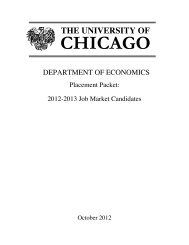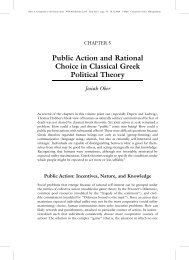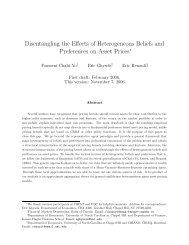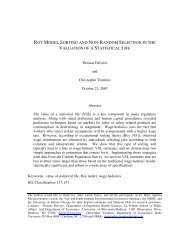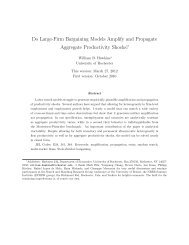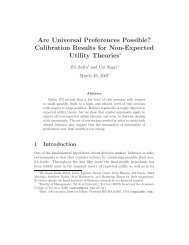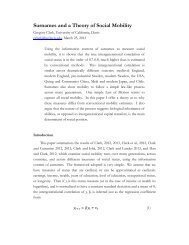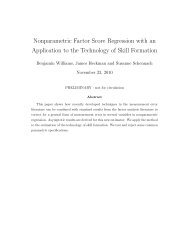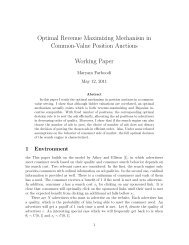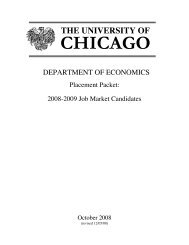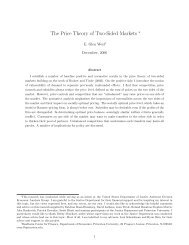Graduate Program Guidebook - University of Chicago Department of ...
Graduate Program Guidebook - University of Chicago Department of ...
Graduate Program Guidebook - University of Chicago Department of ...
Create successful ePaper yourself
Turn your PDF publications into a flip-book with our unique Google optimized e-Paper software.
will be expected to carry out their own original empirical research to meet the course requirements.(=LAWS 99303)42800 CREATIVITY (Galenson)This seminar will study why and how creative people innovate. The emphasis will be onunderstanding the process by which innovators work, and measuring the timing <strong>of</strong> their creativityover the life cycle. Examples will be drawn principally from the arts – important modern painters.Including Cézanne and Picasso; poets, including Eliot and Frost; novelists, including Woolf andHemingway; movie directors, including Welles and Godard; architects, including Corbusier andGehry; and songwriters, including Dylan and the Beatles. The principal assignment will be a termpaper that will examine the creative life cycle <strong>of</strong> one or more innovators <strong>of</strong> the student’s choice;students will present this research in progress to the class during the second half <strong>of</strong> the quarter. Theempirical study <strong>of</strong> individual creativity is a new field, and there are many excellent researchopportunities for students. (=ECON 22650)42900 INNOVATORS (Galenson)Economists believe that innovation is a primary source <strong>of</strong> economic growth. Yet although mostinnovations are made by individuals or small groups, until recently economists have not studied howthose exceptional people produce their discoveries. Recent research has shown that there are twovery different types <strong>of</strong> innovators, who have different goals, and follow different processes. Thiscourse will survey this research, examining the careers and innovations <strong>of</strong> important practitioners in arange <strong>of</strong> modern arts, including painters, novelists, sculptors, poets, movie directors, photographers,songwriters, and architects, as well as entrepreneurs and scientists. The material covered in thiscourse adds a new dimension to our understanding <strong>of</strong> creativity, and <strong>of</strong> how innovators in manydifferent activities produce new forms <strong>of</strong> art and science. (=ECON 22600)43400 TOPICS IN LABOR MARKETS AND MACROECONOMICS (Lopes de Melo)The course will cover topics on the Macroeconomics <strong>of</strong> Labor Markets. We will cover recentadvances in the literature, giving emphasis to theory as well as data issues. Topics will includeemployment fluctuations over the business cycle, partial and general equilibrium search theory,theories <strong>of</strong> wage formation, job and worker flow analysis, frictional wage dispersion and itsinteractions with labor market turnover, and firm and worker heterogeneity.49900 INDIVIDUAL RESEARCH: For Required Research Paper: to be arranged between individualfaculty and students – see Time Schedule for faculty Section Numbers.25



